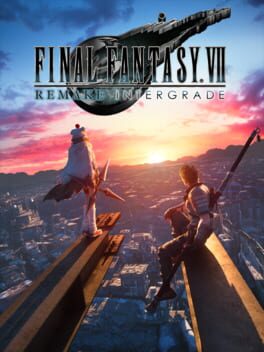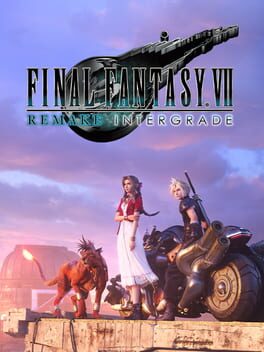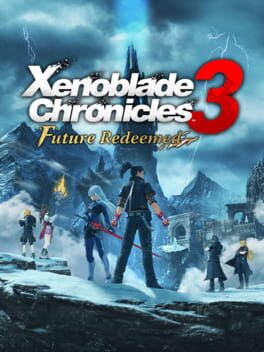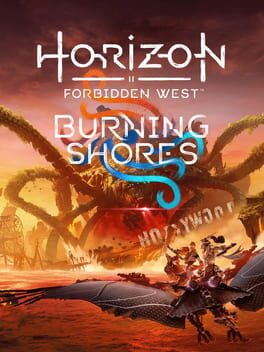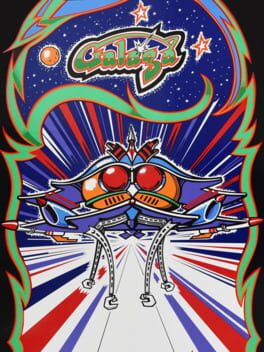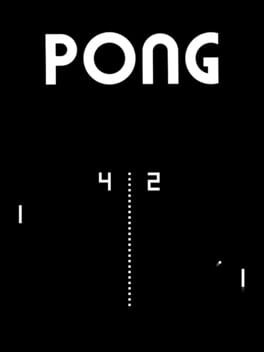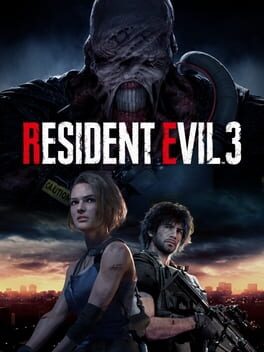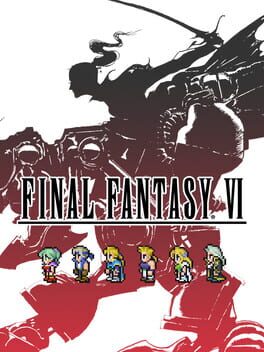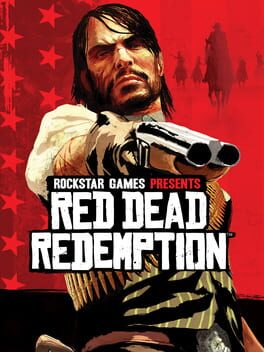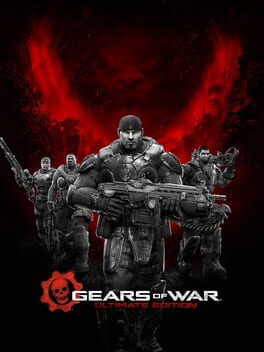ckl1995
BACKER
I originally played this game back when it released, got most of the way to the end, got stuck on a boss and promptly put it down. I recently decided to start over from the beginning and see it through to the end, and I'm glad I did - this game was fantastic.
I think I appreciated this play-through more this time around since I've played the original since my first attempt. The references to the original game and where they deviated/expanded on the story was really cool to see, and I really loved how more fleshed out characters like Aerith, Tifa and Jessie were. The fact that this remake only covers the first few hours of the original and is this good is a testament to the care and attention Tetsuya Nomura and the team put into it. There were a few sections that felt fairly padded out to extend the run time, but overall I'm impressed with the story that was told here and how it sets up the next game.
I was a little weary of the hybrid real-time and menu-based combat, but once I got used to it I grew to really enjoy it. I started by just mashing the attack button with Cloud and not doing much else, but after I started switching characters and utilizing abilities/spells better the combat really opened up. Most of the bosses felt challenging yet fair, and I finished the final battle with a good sense of satisfaction as it was the most difficult battle in the game for me.
This game is gorgeous, and the PS5 version that I played this time around looked even better. The facial animations were a particular standout, and I often felt my gaze drawn to the character's faces during cutscenes which is a testament to how well animated this game is.
I had been kicking myself for the last few years that I had gotten so close to the end of this game and gave up on it, and I'm really glad I managed to come back and finish it this time around. I have a deeper appreciation for the remake after playing the original, and I think both are great experiences in their own right - they stand side by side as truly exceptional games.
I think I appreciated this play-through more this time around since I've played the original since my first attempt. The references to the original game and where they deviated/expanded on the story was really cool to see, and I really loved how more fleshed out characters like Aerith, Tifa and Jessie were. The fact that this remake only covers the first few hours of the original and is this good is a testament to the care and attention Tetsuya Nomura and the team put into it. There were a few sections that felt fairly padded out to extend the run time, but overall I'm impressed with the story that was told here and how it sets up the next game.
I was a little weary of the hybrid real-time and menu-based combat, but once I got used to it I grew to really enjoy it. I started by just mashing the attack button with Cloud and not doing much else, but after I started switching characters and utilizing abilities/spells better the combat really opened up. Most of the bosses felt challenging yet fair, and I finished the final battle with a good sense of satisfaction as it was the most difficult battle in the game for me.
This game is gorgeous, and the PS5 version that I played this time around looked even better. The facial animations were a particular standout, and I often felt my gaze drawn to the character's faces during cutscenes which is a testament to how well animated this game is.
I had been kicking myself for the last few years that I had gotten so close to the end of this game and gave up on it, and I'm really glad I managed to come back and finish it this time around. I have a deeper appreciation for the remake after playing the original, and I think both are great experiences in their own right - they stand side by side as truly exceptional games.
1998
I've been eyeing the Metal Gear Solid games for some time now, but have always been intimidated by the stealth action genre. I'm notoriously bad at any sort of stealth in games; when I'm given the option between stealth and combat I always go in guns blazing, and when I'm forced to use stealth I begrudgingly force my way through it to get it over with. After starting and stopping Metal Gear Solid a couple of times over the last year or two, I finally decided to sit down and play it all the way through.
The high point for me in MGS was its writing and voice performances. I had heard that Hideo Kojima was an amazing storyteller and an auteur in his field, and the story he's written here is very clear proof of that. I absolutely loved the cinematic feel here, and didn't mind the cutscene length as I'm someone who loves being immersed in a story while playing a game. For a game released in 1998, the cutscene and voice direction are incredible, and this has easily become one of my favorite narratives in recent memory.
One thing that I wish I had similar praise for was the gameplay. It's hard for me to say that the gameplay has aged poorly since this is my first time playing it, but I was pretty frustrated with it throughout most of my play-through, especially the gunfights. It felt impossible to aim, and whenever you were forced into gunfights or had to outrun groups of enemies shooting at you (looking at you Communications Tower) I felt my blood boil. I find the term "janky" reductive when it comes to gameplay and controls, but it's hard to think of another term to describe a lot of the gameplay of MGS. I'm sure it was also partly due to the fact that the game wanted you to prioritize stealth whenever possible, but I'm bad at stealth so I was forced into gunfights far more often than the game was probably expecting me to be.
I'm really glad that I finally decided to give MGS a shot. As a big fan of narrative-driven games with complex themes/plots, I had always heard great things about this series. Some less-than-stellar gameplay is very much made up for by strong writing, excellent cutscene/voice direction and a bonkers but fascinating story. I've heard even better things about MGS2 and MGS3, so I'm definitely looking forward to playing through those in the near future.
The high point for me in MGS was its writing and voice performances. I had heard that Hideo Kojima was an amazing storyteller and an auteur in his field, and the story he's written here is very clear proof of that. I absolutely loved the cinematic feel here, and didn't mind the cutscene length as I'm someone who loves being immersed in a story while playing a game. For a game released in 1998, the cutscene and voice direction are incredible, and this has easily become one of my favorite narratives in recent memory.
One thing that I wish I had similar praise for was the gameplay. It's hard for me to say that the gameplay has aged poorly since this is my first time playing it, but I was pretty frustrated with it throughout most of my play-through, especially the gunfights. It felt impossible to aim, and whenever you were forced into gunfights or had to outrun groups of enemies shooting at you (looking at you Communications Tower) I felt my blood boil. I find the term "janky" reductive when it comes to gameplay and controls, but it's hard to think of another term to describe a lot of the gameplay of MGS. I'm sure it was also partly due to the fact that the game wanted you to prioritize stealth whenever possible, but I'm bad at stealth so I was forced into gunfights far more often than the game was probably expecting me to be.
I'm really glad that I finally decided to give MGS a shot. As a big fan of narrative-driven games with complex themes/plots, I had always heard great things about this series. Some less-than-stellar gameplay is very much made up for by strong writing, excellent cutscene/voice direction and a bonkers but fascinating story. I've heard even better things about MGS2 and MGS3, so I'm definitely looking forward to playing through those in the near future.
Absolute perfection. Monolith Soft have perfected the Xenoblade franchise with Future Redeemed. Everything has been building to this moment, and it's one hell of a send-off for my favorite trilogy in gaming.
The combat was expertly refined from XB3; Mitsuda's music is, as always, flawless; and the story was so fucking good, I can't even begin to put it into words. Future Redeemed manages to connect all 3 games together in the perfect package with so many amazing call-backs and references to the previous games.
The high quality bar that Takahashi and the rest of the folks at Monolith Soft have kept up over the years is astounding. They keep outdoing themselves with every release, and Future Redeemed is the pinnacle of them at their craft. I can't wait to see what their next Xeno project will be (although I wouldn't mind a Xenoblade Chronicles X Switch port since I never got to play it).
The combat was expertly refined from XB3; Mitsuda's music is, as always, flawless; and the story was so fucking good, I can't even begin to put it into words. Future Redeemed manages to connect all 3 games together in the perfect package with so many amazing call-backs and references to the previous games.
The high quality bar that Takahashi and the rest of the folks at Monolith Soft have kept up over the years is astounding. They keep outdoing themselves with every release, and Future Redeemed is the pinnacle of them at their craft. I can't wait to see what their next Xeno project will be (although I wouldn't mind a Xenoblade Chronicles X Switch port since I never got to play it).
I'm glad the Burning Shores gave me another chance to romp around the world of Horizon FW. A short but fun DLC that has some really great performances for Aloy and Seyka, particularly with the ending. I also appreciated the more focused area to explore this time around since I definitely have been feeling the large open world map marker fatigue. A solid experience all around.
1981
1972
2023
I've been on a Resident Evil roll lately, and I was incredibly excited to finally get to this game. I never played the original back in the day, but I was aware of its importance in the gaming landscape. I had seen gameplay of the original, and mentally added it to my backlog to get around to someday. Fast forward to the release of the RE4 remake, and I thought that now would be the perfect chance to finally sit down and play it.
This game was, to put it simply, remarkable. Since I played the remakes of RE2 and RE3 before this, I was able to see Capcom perfect their formula, as they absolutely nailed every single thing about this game.
The combat was incredibly fun and responsive, and the knife parry mechanic made some boss battles an absolute blast; also, getting to roundhouse/suplex downed enemies will never get old no matter how many times I do it.
The story was the best of the series so far. I loved the setting and atmosphere, and thought that the banter between Ashley and Leon was really well done. The bosses were interesting and fun to fight, and the whole religious cult aspect was both super creepy and pretty intriguing.
And god DAMN does this game look good. I thought the RE2 and RE3 remakes looked amazing but RE4 takes it to another level. The detailed environments, facial animations, particle effects--they were all top notch.
I've been seeing the praise for this game roll in since it was released, and I honestly can say that it deserves all of the praise it's getting and then some. This was a phenomenal gaming experience, and I loved every second it. I can't wait to go back and play the original to see how they compare, and to play through this remake again and again and again.
This game was, to put it simply, remarkable. Since I played the remakes of RE2 and RE3 before this, I was able to see Capcom perfect their formula, as they absolutely nailed every single thing about this game.
The combat was incredibly fun and responsive, and the knife parry mechanic made some boss battles an absolute blast; also, getting to roundhouse/suplex downed enemies will never get old no matter how many times I do it.
The story was the best of the series so far. I loved the setting and atmosphere, and thought that the banter between Ashley and Leon was really well done. The bosses were interesting and fun to fight, and the whole religious cult aspect was both super creepy and pretty intriguing.
And god DAMN does this game look good. I thought the RE2 and RE3 remakes looked amazing but RE4 takes it to another level. The detailed environments, facial animations, particle effects--they were all top notch.
I've been seeing the praise for this game roll in since it was released, and I honestly can say that it deserves all of the praise it's getting and then some. This was a phenomenal gaming experience, and I loved every second it. I can't wait to go back and play the original to see how they compare, and to play through this remake again and again and again.
2020
It's hard not to compare this game to RE2 after playing them back to back. I loved my time with RE2, and although RE3 isn't outright bad, it really misses the mark in a lot of ways compared to its predecessor.
To start with the positives - I liked the setting a lot. Raccoon City is fun to explore, and I appreciated the great use of color and lighting that made the city feel alive despite it being filled with the undead. I also enjoyed being able to flip back and forth between Carlos and Jill, as it helped to keep the gameplay fresh.
This game's biggest weakness is its characters, specifically Carlos and Nemesis. I thought Jill was a solid enough lead, but Carlos was just so corny and just poorly written. He had absolutely no depth to him, and he just felt like the stand-in macho military dude with an assault rifle. Nemesis was also pretty underwhelming--I rarely felt tense or anxious when he did show up, and fighting him so many times got to be old after a while.
Although I try not to compare games to one another and aim to evaluate them on their merit, RE3 feels like a big step backward from RE2. It wasn't awful, but it left a lot to be desired with the story and characters.
To start with the positives - I liked the setting a lot. Raccoon City is fun to explore, and I appreciated the great use of color and lighting that made the city feel alive despite it being filled with the undead. I also enjoyed being able to flip back and forth between Carlos and Jill, as it helped to keep the gameplay fresh.
This game's biggest weakness is its characters, specifically Carlos and Nemesis. I thought Jill was a solid enough lead, but Carlos was just so corny and just poorly written. He had absolutely no depth to him, and he just felt like the stand-in macho military dude with an assault rifle. Nemesis was also pretty underwhelming--I rarely felt tense or anxious when he did show up, and fighting him so many times got to be old after a while.
Although I try not to compare games to one another and aim to evaluate them on their merit, RE3 feels like a big step backward from RE2. It wasn't awful, but it left a lot to be desired with the story and characters.
2019
With this being my first RE game and my first true survival horror game, I wasn't quite sure what to expect. I knew about the acclaim this game received when it was released, and I knew that I wanted to play it before playing the more recent RE4 remake since RE2 is the beginning of Leon's story. I'm glad I decided to give this game its proper due because it's downright excellent.
I'm honestly a huge wimp when it comes to anything horror. I can barely get through horror movies, and I've always avoided horror games because they're even more immersive than movies and I thought I wouldn't be able to handle it. I will say right off the bat that this game is fucking nerve-wracking, and I honestly think that's a huge reason why I enjoyed it so much. There were a few jump scares here and there, but what really impressed me was the atmosphere and tension that Capcom created here. This game has some of the best use of lighting and sound design I've ever experienced in a video game, and it kept me on edge the entire time I played. You can hear the groans of zombies in a room before you see them; your flashlight creates just enough of a light source to let you see what's in front of you but still leaves things in the shadows; and there are few things that have terrified me more than hearing the footsteps of Mr. X searching for me throughout the police station. RE2 is a masterclass in environmental storytelling and game design.
Speaking of Mr. X, holy shit. I knew he was a part of this game before I played, but I didn't quite realize just how imposing of a presence he really is. This fucker follows you everywhere, and knowing that he was on my tail as I moved from room to room was so damn stressful. I appreciated that he added an element of urgency to my play-throughs, or else I would've been content to take my time and pick over every inch of the station for supplies.
The story was a lot of fun--it felt like a corny action-horror movie, complete with crazy set pieces and amazing one-liners from Leon and Claire alike. There were some truly emotional moments sprinkled in, and the game felt like the perfect length. I completed Leon and Claire's play-throughs in about 12 hours combined and I felt satisfied with my time with the game.
I've been eyeing RE as a franchise to get into for some time now, but wasn't sure I would be able to handle the tension and spookiness of these games. I'm happy to say that I'm glad I took the dive and played RE2, and I'm excited to play RE4 remake and make my way through the other games. I know RE7 is supposedly a lot scarier than the previous games (and it's played in first person which really skeeves me out), but that'll be a bridge to cross when I get there.
I'm honestly a huge wimp when it comes to anything horror. I can barely get through horror movies, and I've always avoided horror games because they're even more immersive than movies and I thought I wouldn't be able to handle it. I will say right off the bat that this game is fucking nerve-wracking, and I honestly think that's a huge reason why I enjoyed it so much. There were a few jump scares here and there, but what really impressed me was the atmosphere and tension that Capcom created here. This game has some of the best use of lighting and sound design I've ever experienced in a video game, and it kept me on edge the entire time I played. You can hear the groans of zombies in a room before you see them; your flashlight creates just enough of a light source to let you see what's in front of you but still leaves things in the shadows; and there are few things that have terrified me more than hearing the footsteps of Mr. X searching for me throughout the police station. RE2 is a masterclass in environmental storytelling and game design.
Speaking of Mr. X, holy shit. I knew he was a part of this game before I played, but I didn't quite realize just how imposing of a presence he really is. This fucker follows you everywhere, and knowing that he was on my tail as I moved from room to room was so damn stressful. I appreciated that he added an element of urgency to my play-throughs, or else I would've been content to take my time and pick over every inch of the station for supplies.
The story was a lot of fun--it felt like a corny action-horror movie, complete with crazy set pieces and amazing one-liners from Leon and Claire alike. There were some truly emotional moments sprinkled in, and the game felt like the perfect length. I completed Leon and Claire's play-throughs in about 12 hours combined and I felt satisfied with my time with the game.
I've been eyeing RE as a franchise to get into for some time now, but wasn't sure I would be able to handle the tension and spookiness of these games. I'm happy to say that I'm glad I took the dive and played RE2, and I'm excited to play RE4 remake and make my way through the other games. I know RE7 is supposedly a lot scarier than the previous games (and it's played in first person which really skeeves me out), but that'll be a bridge to cross when I get there.
2022
As I started getting into JRPGs in the last few years and began looking around the internet for suggestions, there was one game that consistently kept coming up as one of the all-time greats. I knew that I had to play it one of these days, just to see if it matched up to the almost legendary status that surrounds it.
Since this was my first time playing FF6, I tried to keep my expectations in check as much as I could. Up until this point, I had played a handful of the other FF games, and I was excited to experience this game for the first time. All in all, I feel like FF6 managed to impress me in a number of ways, but there were some aspects that left me wanting more.
I think this game's strongest asset is its writing. The decision to forgo one main character and to instead focus on a larger party was one that, in my opinion, worked really well. I feel like games with large character rosters can often feel overstuffed, and they almost always end up focusing too much on a few characters while leaving others out on the margins. FF6 did a wonderful job of giving most of the cast time to shine and by the end I felt a lot more connected to the party than I thought I would.
The music was another high point for me - the main theme and overworld music have been stuck in my head for days now, which is a testament to just how good the music is. The opera scene in particular was excellent, and I loved the inclusion of recorded English lines for that section of the game.
Where I felt the game was lacking was in its pacing, particularly in the final 1/3 of the game. It seemed like, at a certain point, we were hurdling towards the end/the final boss battle, and it felt like there was more room to flesh out the plot and characters a bit more. While I thought Kefka was a great antagonist, the rapid pace of the final act didn't allow him to really shine as much as I would've liked, although he still ranks as one of the better video game villains in my book.
FF6 is a great game, no doubt about it. I had a similar experience with FF7 where I think I let the reputation and mythos of the game cloud my experience, and I went in with sky high expectations that were impossible to meet. I tried not to do that here with FF6, but I think some of those expectations still managed to slip through the cracks. I really enjoyed my time with it, and I think I'll do another play-through somewhere down the road when I've had some more time to digest it.
Since this was my first time playing FF6, I tried to keep my expectations in check as much as I could. Up until this point, I had played a handful of the other FF games, and I was excited to experience this game for the first time. All in all, I feel like FF6 managed to impress me in a number of ways, but there were some aspects that left me wanting more.
I think this game's strongest asset is its writing. The decision to forgo one main character and to instead focus on a larger party was one that, in my opinion, worked really well. I feel like games with large character rosters can often feel overstuffed, and they almost always end up focusing too much on a few characters while leaving others out on the margins. FF6 did a wonderful job of giving most of the cast time to shine and by the end I felt a lot more connected to the party than I thought I would.
The music was another high point for me - the main theme and overworld music have been stuck in my head for days now, which is a testament to just how good the music is. The opera scene in particular was excellent, and I loved the inclusion of recorded English lines for that section of the game.
Where I felt the game was lacking was in its pacing, particularly in the final 1/3 of the game. It seemed like, at a certain point, we were hurdling towards the end/the final boss battle, and it felt like there was more room to flesh out the plot and characters a bit more. While I thought Kefka was a great antagonist, the rapid pace of the final act didn't allow him to really shine as much as I would've liked, although he still ranks as one of the better video game villains in my book.
FF6 is a great game, no doubt about it. I had a similar experience with FF7 where I think I let the reputation and mythos of the game cloud my experience, and I went in with sky high expectations that were impossible to meet. I tried not to do that here with FF6, but I think some of those expectations still managed to slip through the cracks. I really enjoyed my time with it, and I think I'll do another play-through somewhere down the road when I've had some more time to digest it.
To me, Read Dead Redemption 2 is a game that is both remarkable in its artistic achievements but also painstaking to play at times.
Everything about this game is methodical and requires patience on the part of the player. Actions like skinning an animal, dismounting your horse and crafting ammunition at your campsite feels deliberate and oftentimes cumbersome. I can't help but feel like this was intentional on the part of Rockstar - to make the player slow down and immerse themselves in this ludicrously accurate world they've built.
When I think of the story, I think mainly of Arthur Morgan - the complex, richly layered and conflicted main character. Arthur stands among gaming's greatest protagonists with characters like Joel + Ellie, Kratos and Atreus and even John Marston himself. Arthur might be my favorite written character in video games, and in most fiction in general; his arc throughout the game is profoundly impactful, and the ending of his story, without any spoilers, leaves me feeling empty in a sad but almost beautiful way.
I remember playing this for the first time when it came out in 2018, 8 years after the original. I saw advertisements for the game in subway stations and on posters, and couldn't remember the last time a video game had generated this much hype around its release. Up until that point, video games for me had been a vehicle for entertainment, a way to pass the time. RDR2 was the first time that I allowed myself to get truly swept up in the narrative of a video game, to allow myself to identify with the characters, their struggles and achievements, their friendships and betrayals. I remember finishing this game for the first time and being shocked at just how incredible I thought this game was, at how Rockstar had managed to create a game that I considered to be a work of art. I thought about this game for weeks afterward.
Fast forward 4 years, and I decided to take another dive into the world of Arthur and the gang. This time, I decided to take my time with the game as much as possible. I deliberately sat down at my camp and chatted with members of the gang; I skipped the fast travel so I could take in this expansive, gorgeous world; I cooked meals for myself under the starlit night sky while I was out on the road. I engaged with this game in a way I hadn't before, and I'm so happy I did.
Having played other story-rich games like The Last of Us and God of War since my first play-through in 2018, I was able to appreciate this game in an entirely new way this time around. Despite certain aspects of the game seeming purposefully frustrating, and some jankiness around movement/gun mechanics, this game is very special to me and an objective masterpiece in my eyes. RDR2's scope, writing, world design, voice/motion capture performances and music are all near flawless, and when you bring them together you get a product of such remarkable quality that doesn't seem like it should even exist - but I'm so glad it does.
Everything about this game is methodical and requires patience on the part of the player. Actions like skinning an animal, dismounting your horse and crafting ammunition at your campsite feels deliberate and oftentimes cumbersome. I can't help but feel like this was intentional on the part of Rockstar - to make the player slow down and immerse themselves in this ludicrously accurate world they've built.
When I think of the story, I think mainly of Arthur Morgan - the complex, richly layered and conflicted main character. Arthur stands among gaming's greatest protagonists with characters like Joel + Ellie, Kratos and Atreus and even John Marston himself. Arthur might be my favorite written character in video games, and in most fiction in general; his arc throughout the game is profoundly impactful, and the ending of his story, without any spoilers, leaves me feeling empty in a sad but almost beautiful way.
I remember playing this for the first time when it came out in 2018, 8 years after the original. I saw advertisements for the game in subway stations and on posters, and couldn't remember the last time a video game had generated this much hype around its release. Up until that point, video games for me had been a vehicle for entertainment, a way to pass the time. RDR2 was the first time that I allowed myself to get truly swept up in the narrative of a video game, to allow myself to identify with the characters, their struggles and achievements, their friendships and betrayals. I remember finishing this game for the first time and being shocked at just how incredible I thought this game was, at how Rockstar had managed to create a game that I considered to be a work of art. I thought about this game for weeks afterward.
Fast forward 4 years, and I decided to take another dive into the world of Arthur and the gang. This time, I decided to take my time with the game as much as possible. I deliberately sat down at my camp and chatted with members of the gang; I skipped the fast travel so I could take in this expansive, gorgeous world; I cooked meals for myself under the starlit night sky while I was out on the road. I engaged with this game in a way I hadn't before, and I'm so happy I did.
Having played other story-rich games like The Last of Us and God of War since my first play-through in 2018, I was able to appreciate this game in an entirely new way this time around. Despite certain aspects of the game seeming purposefully frustrating, and some jankiness around movement/gun mechanics, this game is very special to me and an objective masterpiece in my eyes. RDR2's scope, writing, world design, voice/motion capture performances and music are all near flawless, and when you bring them together you get a product of such remarkable quality that doesn't seem like it should even exist - but I'm so glad it does.
2012
Spec Ops: The Line has one of the strongest, bleakest war narratives I've ever seen.
The story in this game is fascinating--I had heard a little about it before playing it but getting to experience it is another thing entirely. Being forced to face the consequences of your actions in this game is often uncomfortable, and by the time the credits rolled I truly had no idea whether I had done the "right" thing at any point in this game.
The story is buoyed by strong character writing and some dope music tracks that really elevate this game above many of its contemporaries. The gameplay was fine--the enemies often shredded me on Normal difficult which was frustrating and the controls could feel a little janky at times, but I can't fault the game too much given it's over a decade old at this point.
I've played many military/war games in my lifetime, but Spec Ops absolutely has the best narrative of any of them, especially given it was released in 2012. War is often glorified in the big hitters like Call of Duty or Battlefield--it's your job to stop the big baddies and save the country/world, but this game excels in its examination of war and the price one has to pay to win it. Do the ends justify the means? How much collateral damage is too much? I'll be thinking about this one for a while, and I'm glad I finally had the chance to play it.
The story in this game is fascinating--I had heard a little about it before playing it but getting to experience it is another thing entirely. Being forced to face the consequences of your actions in this game is often uncomfortable, and by the time the credits rolled I truly had no idea whether I had done the "right" thing at any point in this game.
The story is buoyed by strong character writing and some dope music tracks that really elevate this game above many of its contemporaries. The gameplay was fine--the enemies often shredded me on Normal difficult which was frustrating and the controls could feel a little janky at times, but I can't fault the game too much given it's over a decade old at this point.
I've played many military/war games in my lifetime, but Spec Ops absolutely has the best narrative of any of them, especially given it was released in 2012. War is often glorified in the big hitters like Call of Duty or Battlefield--it's your job to stop the big baddies and save the country/world, but this game excels in its examination of war and the price one has to pay to win it. Do the ends justify the means? How much collateral damage is too much? I'll be thinking about this one for a while, and I'm glad I finally had the chance to play it.
2010
It's been 12 years since I've played this game, and it still holds up as one of my all-time favorites all these years later.
This is still one of my favorite stories in gaming. John Marston is an incredible protagonist, and his journey of self-reflection, regret and redemption is so well executed. Rockstar created one of the best worlds in video games with this game--getting to roam around the Wild West, acting out cowboy shit, was and continues to be so damn fun. The characters are all well written, and it never felt like a chore hopping around from one character quest-line to the next because they were all entertaining in their own ways.
The game has aged a little less gracefully in some areas--the movement is still fairly janky, and the combat system leaves a lot to be desired in terms of mechanical depth (especially if you have aim assist on), but they're minor gripes compared to how incredible I think this game is.
This is still one of my favorite stories in gaming. John Marston is an incredible protagonist, and his journey of self-reflection, regret and redemption is so well executed. Rockstar created one of the best worlds in video games with this game--getting to roam around the Wild West, acting out cowboy shit, was and continues to be so damn fun. The characters are all well written, and it never felt like a chore hopping around from one character quest-line to the next because they were all entertaining in their own ways.
The game has aged a little less gracefully in some areas--the movement is still fairly janky, and the combat system leaves a lot to be desired in terms of mechanical depth (especially if you have aim assist on), but they're minor gripes compared to how incredible I think this game is.
I decided that in 2023 I'd like to revisit some of the games/franchises I loved as a teenager to see how they held up--Gears, Halo, Call of Duty, etc. I started with Gears of War Ultimate Edition and found that this game has aged a lot less gracefully for me than I thought it would.
To start with the positives--this enhanced version looks great, especially compared to the original. There were some minor graphical issues but overall it's a solid looking game. The graphics definitely complement the level design--I loved the way each act was split into distinct areas with their own design and atmosphere. I also think the premise of the story is pretty interesting if a little half-baked--the overarching world building and lore is fascinating, but the story itself was a bit bland.
Where this game really shows its age, and is a sign of the times, is the gameplay. I love a good cover shooter as much as the next person, but I found myself getting tired of the "combat encounter, run down a hallway, another combat encounter, move a little further, combat encounter, repeat" formula. I know that's how a lot of shooters around that time were designed, I just think I've grown out of that style of gameplay. The actual shooting mechanics are decently fun--the timed reload system is a neat addition, and it'll never not be fun chainsawing a Locust grunt in half. I also struggled a lot with the enemy AI--they're much more aggressive than I remember and there were more than a few instances when they would push me and blow me the fuck up with a torque bow right in my face.
Although I didn't enjoy GoW Ultimate Edition as much as I did when I was younger, it still holds up fairly well today despite its dated mechanics and lackluster story. I'm curious to see how much the formula evolves with the later entries that I plan to replay.
To start with the positives--this enhanced version looks great, especially compared to the original. There were some minor graphical issues but overall it's a solid looking game. The graphics definitely complement the level design--I loved the way each act was split into distinct areas with their own design and atmosphere. I also think the premise of the story is pretty interesting if a little half-baked--the overarching world building and lore is fascinating, but the story itself was a bit bland.
Where this game really shows its age, and is a sign of the times, is the gameplay. I love a good cover shooter as much as the next person, but I found myself getting tired of the "combat encounter, run down a hallway, another combat encounter, move a little further, combat encounter, repeat" formula. I know that's how a lot of shooters around that time were designed, I just think I've grown out of that style of gameplay. The actual shooting mechanics are decently fun--the timed reload system is a neat addition, and it'll never not be fun chainsawing a Locust grunt in half. I also struggled a lot with the enemy AI--they're much more aggressive than I remember and there were more than a few instances when they would push me and blow me the fuck up with a torque bow right in my face.
Although I didn't enjoy GoW Ultimate Edition as much as I did when I was younger, it still holds up fairly well today despite its dated mechanics and lackluster story. I'm curious to see how much the formula evolves with the later entries that I plan to replay.
